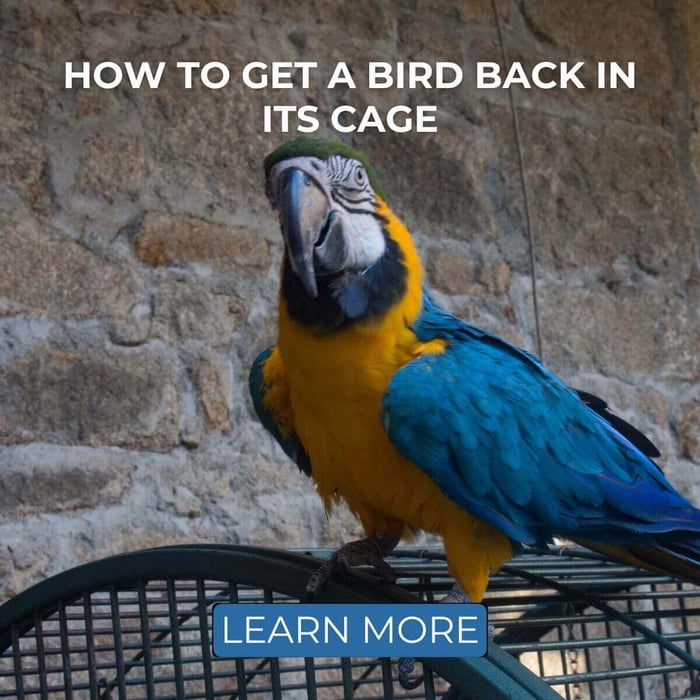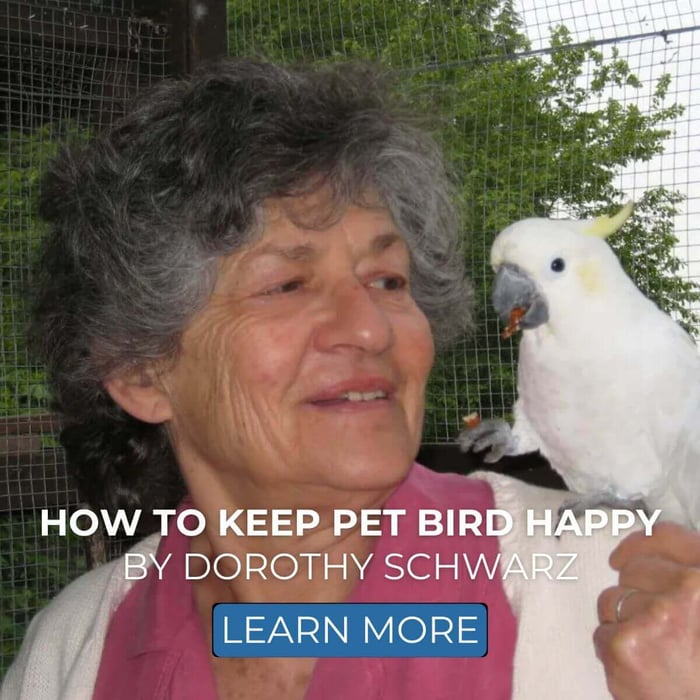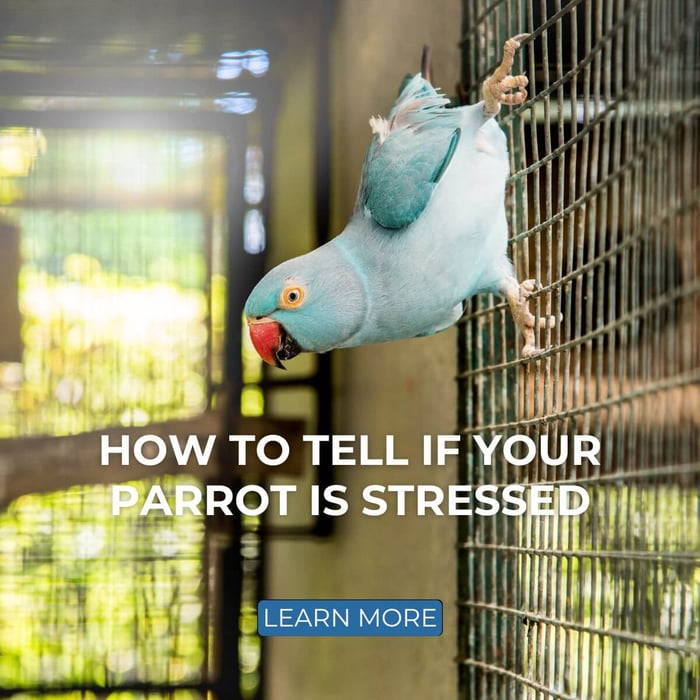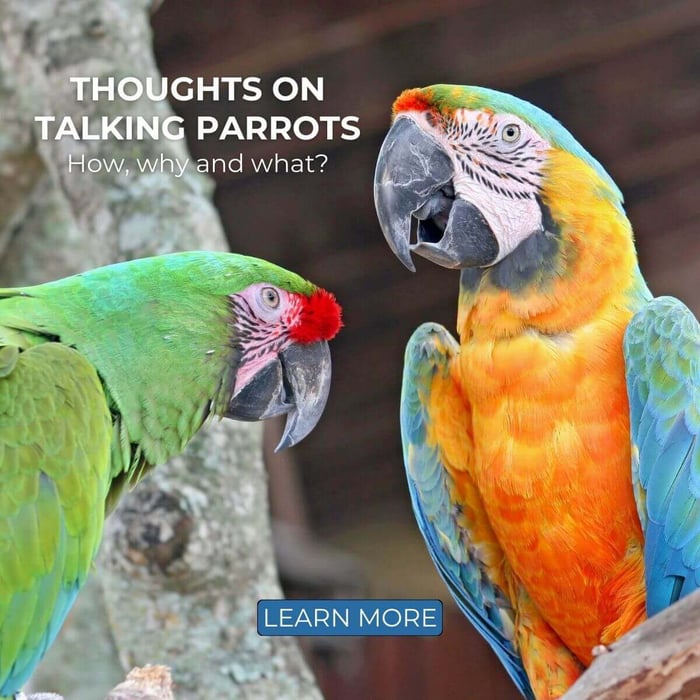How Often Do Parrots Eat? What You Need to Know
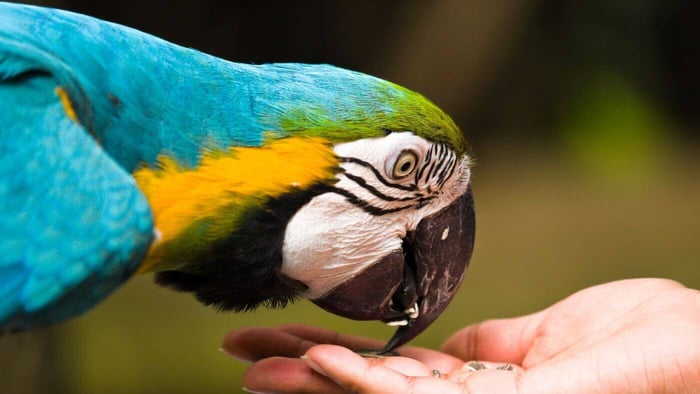
Thinking about getting a parrot and wondering how often you should be feeding your new feathered friend? Parrots' meals are small but frequent, but as with many things in life, one size doesn't fit all. You can feed your parrot twice a day, but this isn't a set rule. This blog post will clear up any questions you have about how often do parrots eat.
Let's get started!
How Often Do Parrots Eat In The Wild?
In order to figure out how to care for our feathered pets in captivity, it's often helpful to take a peek at their habits in the wild. Although parrot feeding behaviour is obviously not the same for every species, we dove into some scientific literature and found that most parrots will spend their day in roughly the same way:
- Active foraging during a few hours in the morning
- Resting and social interaction in the afternoon
- Active foraging again in the late afternoon/evening until the sun begins to set
There were some species and particular habitats where parrots didn't follow this "schedule", but it's definitely still a good place to start! If you've been keeping parrots for a while, you'll know that the morning and late afternoon/evening are definitely when they're most active.
How Often Do Parrots Eat In Captivity?
As mentioned earlier, the frequency of meals for parrots depends on their species, size, and owner. Some folks like to let their parrot pick from its food bowl all day long, while others prefer to feed at set times. Considering wild parrots' habits, feeding your domestic bird twice a day seems like a good place to start. Leaving food in the bowl all day is a recipe for an obese parrot in most cases since our birds aren't able to limit themselves only to what they need.
The ideal approach to feeding your parrot, regardless of breed, is actually to roughly match their meal schedule to yours. Parrots are social learners who view you as flock members, so they prefer to eat when they see you having a meal as well.
If you'd like to stick to feeding twice daily, you can do so when you are having breakfast and dinner (unless you eat dinner very late, in which case your bird will already be asleep). Don't remove leftover food from the cage right away; let it sit for at least an hour in case your bird decides it's not done yet. After that, you can take the leftovers out to keep them from spoiling.
Tip: Not sure what to feed your parrot during its two daily mealtimes? Have a look at our full article on the parrot diet to help you figure out what your bird should be eating.
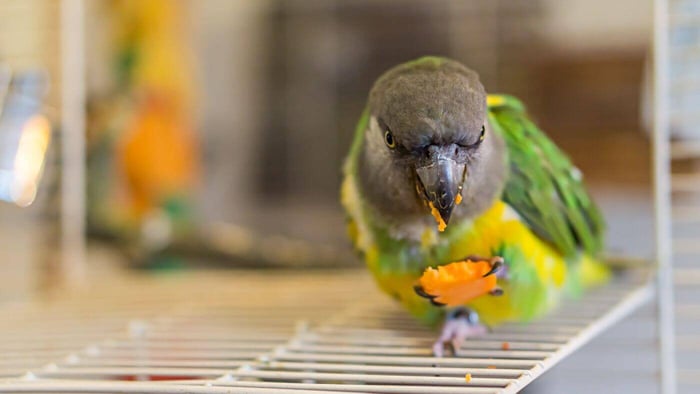
Overfeeding Your Parrot
When feeding your parrot and setting up their meal schedules, make sure you don't overfeed your bird. Consistent overfeeding can lead to a host of different issues, like obesity and fatty liver disease! We often tend to overestimate how much our pets need to eat to stay healthy. And don't forget to count treats as well: if your parrot got a bunch of nuts during training, it definitely doesn't need a huge meal a few hours afterwards.
Your vet can tell you how much your parrot should be eating on a daily basis. Remember to weigh the bird regularly to make sure it's still at a healthy weight for its species and to be able to adjust if you realise you've been feeding too much.
How To Feed Your Parrot
To lead a healthy and happy life, your parrot must have a balanced diet. It's still common for parrot owners to mistakenly think their bird can survive on a seed-only diet, but unfortunately, feeding only dry seed blends can lead to health issues down the road.
Exact feeding needs will obviously vary from species to species, but here are a few tips to keep in mind if you're looking to optimise your parrot's daily diet:
1. Feed Pellets
Since pellets are a mixture of fruit, grains, and vegetables, they are jam-packed with nutrition and will play a vital role in maintaining the good health of your parrot. This is because they're designed especially for indoor birds, which don't need as many calories on a daily basis as a wild bird that has to fly great distances in order to find its daily meals.
Pellets are lower in calories and fat than seeds, meaning that a high-quality pellet brand should make up a sizeable percentage of domestic birds' diets.
www.ParrotEssentials.co.uk/Pellets
2. Feed Seeds
Hold on, didn't we just say that pellets were better than seeds? In terms of nutritional composition, yes. However, a varied diet is extremely important to prevent boredom and to make sure your feathered pet gets all the nutrients it needs.
As with pellets, there are plenty of different seed mixes available. You can also purchase packets of different seeds and mix them on your own. Don't forget to sprout seeds regularly for an extra-nutritious parrot snack!
www.ParrotEssentials.co.uk/Seeds
3. Feed Fresh Fruits And Vegetables
A parrot should eat plenty of fresh vegetables (on a daily basis) and some fresh fruits (on a weekly basis). Fresh produce contains important (micro)nutrients, and the extra variety will help keep your bird from becoming bored!
Remember to take it easy with the amount of fruit because most types of fruit cultivated for human consumption are very high in sugar.
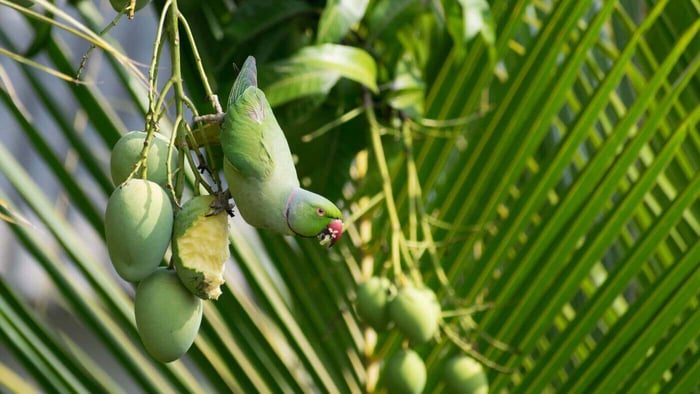
4. Motivate Your Parrot To Forage
Wild parrots spend the majority of their time searching for food, and your domestic bird will benefit from being motivated to do the same. Make your parrot work for its food by presenting treats in foraging toys, making a simple foraging box or feeding vegetables and fruit whole rather than cut up.
You can read more about the concept of foraging and why it's so important for our birds in the full post on foraging for parrots.
5. Check Your Parrot's Weight
Did you know that obesity is one of the primary silent killers in domestic parrots? As a result of all the myths out there about what these birds should and shouldn't eat, many end up overfed or maintained on extremely fatty and calorie-rich diets. Most parrot owners are unable to recognise an overweight parrot due to their layers of feathers.
Weigh your parrot regularly to make sure it's still in the normal weight range for its species. If it isn't, try contacting your avian vet so they can help you come up with a diet plan. This way, you'll help prevent potentially deadly issues like fatty liver disease, thickened arteries, heart problems and more.
How Long Can Your Parrot Go Without Food?
Depending on their weight and species, parrots can survive for around 48 hours without food. There have been cases of birds going hungry for longer and surviving, but obviously, you shouldn't leave yours without anything to eat for more than a day!
If your parrot is not eating, give some thought to its surroundings. If you've just brought the bird home or made some drastic changes, it's not unusual for it to refuse to eat for a day or two. However, if nothing has changed, and especially if you are seeing other possible symptoms of illness, you need to call an avian vet right away. Parrots are very good at hiding discomfort, so if yours isn't refusing to eat, that's a pretty blatant sign something is wrong.
Conclusion: How Often Do Parrots Eat?
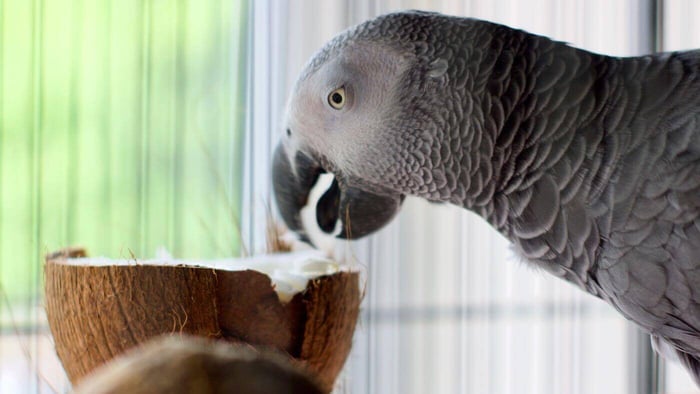
If you own a parrot, learning to look after it and tracking its diet appropriately is an important responsibility. The amount of food a parrot eats in a day depends on various factors such as species, overall health, and age. However, a general rule of thumb based on many parrots' wild foraging habits is to feed twice a day.
Try feeding when you're having a meal, too: this will make your bird feel safe and included in the flock.

